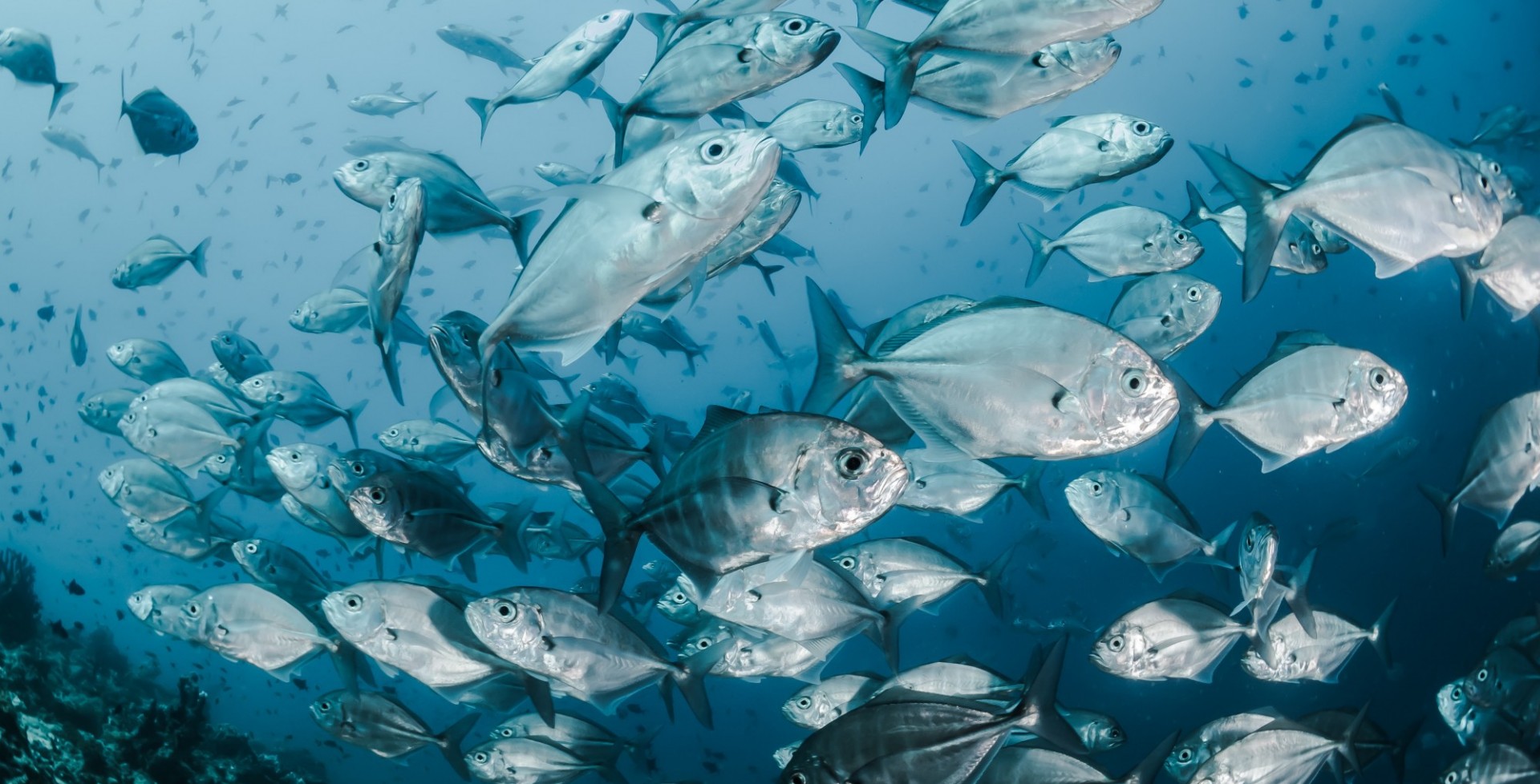Ocean Health
The Climate and Life Initiative funds Columbia University scientists whose research addresses fundamental questions about the impacts of climate change on ocean health and ecosystems. Their work informs understanding of changes in the oceans, as well as the risks facing marine ecosystems and the communities that rely on them.
The ocean covers three-quarters of our planet and is a critical component of Earth’s climate system, helping to regulate climate and keep the planet habitable. Scientists estimate the ocean has absorbed over 90 percent of atmospheric heat caused by climate change and is the sink for roughly 30 percent of human-caused carbon dioxide emissions.
As a result, the ocean is changing rapidly. Rising water temperatures, acidification, marine pollution, and other stressors are already impacting marine life, fisheries, and coastal communities.
Among the concerns: One-quarter of the world’s dietary protein comes from the ocean, yet we have little understanding of how changes in ocean temperatures and chemistry will impact ocean life, from microbes to coral reefs to commercial fish stocks, and threaten food security, human health, and economic prosperity.
Yet new tools such as genomic sequencing—now so fast and affordable that entire genomes of marine microbes can be sequenced—enable scientists to understand how ocean life responds and adapts to ocean acidification and warming temperatures.
We invest in Columbia University scientists whose research builds an understanding of how marine ecosystems, productivity, and genetic diversity will respond to climate change. Their research questions include:
- How are calcifying organisms such as corals and shellfish threatened by global warming and ocean acidification?
- What is the impact of warming waters on commercially important fish species?
- How will climate change impact ocean currents and circulation?
The knowledge generated by their work contributes to the sustainable management and conservation of marine resources and helps ensure sufficient and nutritious food for present and future generations.

